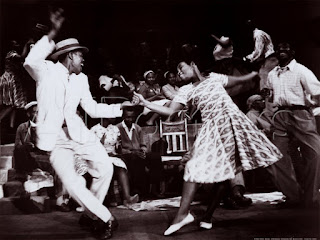
In the Savoy dance hall in Harlem, as right on time as nineteen twenty six, (the Savoy opened its entryways without precedent for March nineteen twenty six), dark artists were testing and driving the way, swing music was rising. The Charleston move fever was declining. Afterward, the new melodic style would be replicated by Benny Goodman. A few antiquarians credit the begin of the swing age to a later visit by Benny Goodman, nineteen thirty five truth be told, which is very sometime later!
Benny Goodman had tuned in to the performers in Harlem and his band were swing pioneers, the extent that white people were concerned. An incredible band they were as well, however they were not the principal trend-setters of the class. By the thirties Benny Goodman was playing swing on his late night radio space in New York and when he went on visit he battled, well he battled in New York and all stations west until the point when he got to California where they were lined around the square. The reason being that his late night New York radio program was being grabbed at top time every one of those miles west, unique time zone obviously, and the general population adored it. Formally this is the point at which the swing age was conceived. Be that as it may, backpedal to nineteen twenty six in Harlem and you'd discover dark artists there were trying different things with new moves to fit the new music, from Fletcher Henderson essentially and they'd adjusted Charleston moves to fit their new style as well.
The new move didn't generally have a name. It's been recommended that they called it the breakaway, in light of the fact that in dance hall male artists kept the woman close, yet in the new move she was 'swung out'. Others say breakaway is fairly the first name for a move which today is known as a swing out and that the move was basically called The Hop. So to 1927. There were move marathons at that point, recollect the film 'They Shoot Horse's Don't They'. It was at a move marathon, so the story goes that a daily paper columnist asked a dark artist by the name of Shorty George Snowden "hello, what's that new move you're doing?" Presumably nobody outside the Savoy had seen it much. Well George, who has a move step named after him, the 'Shorty George' obviously, was somewhat of a mind. Moreover, that week or possibly that day a young fellow called Charles Lindbergh had influenced the principal solo plane to flight over the Atlantic, relentless. America was infatuated with its new saint and a daily paper feature had perused (supposedly, in spite of the fact that I've been not able think that its) 'Fortunate Lindy Hops The Atlantic'. "We call it the Lindy Hop" jested George thus another move fever was conceived.
Comments
Post a Comment